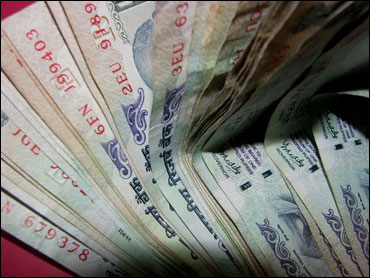
As the race to select a suitable partner for four government-owned general insurers to handle their health insurance claims is about to reach the finishing line, players in the insurance industry are wondering if one particular corporate group, the Anil Dhirubhai Ambani Group (ADAG), will be allowed to bag a contract that would enable it to dominate this Rs 10,000 crore (Rs 100 billion) fast-growing market.
ADAG's rivals are lobbying overtime to ensure that a company affiliated to the group, Mediassist India TPA Private Limited, is considered ineligible to become a partner of a consortium of four public sector general companies - National Insurance, New India Assurance, Oriental Insurance and United India Insurance -that have come together under the aegis of the General Insurers' (public sector) Association of India (GIPSA).
Whether or not Mediassist wins the race will be known in the near future, but its rivals contend that the company should not have been considered eligible to bid in the first place because of conflict of interest.
An email sent to S R Bhat, chief administrative officer of Mediassist, after a phone call to his office in Bangalore, seeking to ascertain his views on the subject, went unanswered.

An important reason why lobbying has been intense is the fact that health insurance has emerged as the fastest growing segment of non-life insurance industry in India.
This is also the second largest segment of the insurance industry in terms of size - Rs 8,305 crore (Rs 83.05 billion) or $1.8 billion in fiscal year 2009-10 - and is anticipated to increase at a compound annual average growth rate of around 25 per cent over the next five years, that is, till 2014-15.
A TPA (Third Party Administrator) acts as a facilitator between the insurance company and its customers. TPAs are firms to which insurers outsource servicing of health claims.
After insurers issue policies, TPAs undertake much of the back office work which includes networking with providers of health-care such as hospitals.
In return for their services, TPAs typically earn as fees 5 per cent of the premium amounts.
The health insurance market in India has huge potential to grow.
Private health insurance covers barely 3 per cent of the country's population. The health insurance industry is expected to grow rapidly for a number of reasons which include rising costs of private healthcare and the growing incidence of lifestyle diseases.

In addition, the expansion of government schemes such as the Rashtriya Swasthya Bima Yojana - that aims at covering 60 million new people each year - will drive the growth of the industry together with a bigger marketing push by insurers.
Moreover, tax incentives on health insurance premia and health insurers accessing agents of life and non-life insurance companies could add an impetus to the industry's growth.
In India at present, there are 30 companies offering health insurance which are registered with the Insurance Regulatory and Development Authority.
The four public sector insurance companies that are members of GIPSA together account for over 60 per cent of the total market.
These four companies hope to retain their dominant position due to their large, all-India network of branches and agents.
Among private insurers, two companies account for over three-fourths of the rest of the market (that is, less than 40 per cent of the total): ICICI Lombard and Bajaj Allianz.
These two companies manage claims on their own through their internal health administration divisions and do not use the services of external TPAs.
Other private insurers such as Max Bupa Health Insurance too have their own claims settlement divisions.

The decision to bring in a joint venture partner for the four public sector insurers came in the wake of a raging controversy in 2010 over cashless mediclaim facilities.
As of now, health insurance is a loss-making activity for the four public sector insurers who have to pay out more than what they earn as premia - in technical jargon, the insurers have a claims ratio in excess of 100 per cent. It is learnt that at one stage, the claims ratio had gone up to as high as 130 per cent.
Even as corporate hospitals were accused of overcharging customers and for refusing to establish payment standards for specific kinds of treatment, insurers blamed TPAs for their mounting losses. From July 1, 2010 onwards, most policyholders were denied cashless treatment in high-end hospitals.
Since health insurance has so far not been profitable for insurers, claims management through TPAs becomes critical to the profitability of this segment of the insurance industry.
It was against this backdrop that on August 14, 2010, GIPSA issued an invitation for expressions of interest (EoIs) in setting up a joint venture partner that would hold up to 26 per cent of the capital of a TPA that would provide claims management services to the four public sector insurers. The last date for submission of EoIs was September 3.

The proposed TPA joint venture is estimated to require an upfront capital investment of Rs 200 crore (Rs 2 billion) or $ 42.5 million.
The partner is expected to have a minimum of five years of experience in health insurance services, including claims management.
In addition, the partnering company must have handled at least 500,000 claims settlements over the last three years and/or its parent firm should have a minimum net worth of Rs 250 crore (Rs 2.5 billion).
Net worth has been defined as the sum of subscribed and paid-up equity and reserves from which is deducted the sum of revaluation reserves, miscellaneous expenditure not written off and accrued liabilities.
It was stipulated that the partnering company will not be able to transfer its stake in the proposed joint venture for seven years.
The GIPSA proposal added that between 50 per cent and 75 per cent of the health insurance premia of the four public sector insurers would be transferred to the joint venture in three years and this proportion would go up to between 75 per cent and 100 per cent by the end of the fifth year.
Arguably the most important provision in the qualification criteria proposed by GIPSA pertains to conflict of interest and this is where a controversy has arisen.

It has been stated: "The applicant must disclose if it or its group companies or any of its promoters or significant shareholders (defined as those holding 5 per cent or more of the applicant's shares) have any conflict of interest with respect to the GIPSA member companies and the potential TPA venture (as on the time of submitting the EoI) which include, but are not limited to, the following:
If the applicant (or any of its promoters/significant shareholders) ... (has) any such conflict of interest...the applicant must indicate how the risks arising out of such conflict would be mitigated."
After GIPSA's announcement inviting EoIs, on October 13, the Association of TPAs moved the Competition Commission of India against the decision of the public sector insurers to appoint their own TPA.
The association also decided to petition the IRDA against what it described as an anti-competitive move aimed at forming a cartel to restrict competition.
The general secretary of the Association of TPAs, S K Mahapatra, wondered whether the proposed high capital adequacy norms were aimed at keeping Indian companies out of the bidding process and for bringing in a foreign partner -- although the invitation for EoIs does not specifically mention the issue of nationality of the joint venture partner.

He pointed out that the IRDA sought capital adequacy of Rs 100 crore (Rs 1 billion) for an insurance company and Rs 50 crore (Rs 0.5 billion) for a health insurance company, which were much lower than what has been specified by GIPSA.
Given that IRDA has already stated that no promoter can hold two TPA licences, the Association of TPAs wanted to know whether IRDA would allow companies to continue their existing businesses even if they became a partner of the GIPSA member companies.
The existing TPAs are evidently concerned that the proposed new joint venture would grab the bulk of the fees earned by them from public sector insurers amount to roughly Rs 250 crore (Rs 2.5 billion) last year leading to a major shake-out in the industry.
On December 8, GIPSA selected nine out of 24 applicants and asked them to provide detailed information about what they would provide to the proposed joint venture on the basis of a new request for proposals (RFP) document.
The nine shortlisted firms are: Cambridge Solution, Coris International, Lason India, Mediassist TPA, E-meditek, United Healthcare India, Patni Computers, Atena TPA USA and Trans Union USA.
It is learnt that the first five companies named have so far responded to GIPSA.

Rivals of Mediassist point out that this company should be declared ineligible to bid for becoming a joint venture partner of the proposed TPA due to conflict of interest since the company is and has been owned by ADAG and is also currently engaged in providing claims management services to Reliance Insurance which is also part of ADAG and will, hence, be in direct competition with the proposed TPA joint venture with the public sector insurers.
"We don't want a backdoor entry by the ADAG company," said the representative of a rival TPA on condition of anonymity.
Replying to an email sent by rediff.com, A K Singhal, chief executive officer of the New Delhi-based General Insurers' (Public Sector) Association of India (GIPSA) stated: "The process of evaluation of responses to the RFP on this project is currently on and the evaluation committee is expected to take into account all the relevant facts under the parameters laid down before coming to a view in regard to any particular bidder.
At this stage, when the evaluation process is on, it will not be possible for us to make any comment in regard to any individual bidder."